



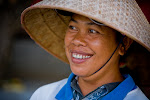
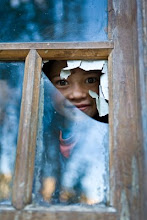
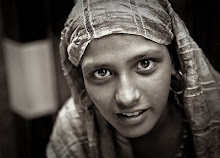
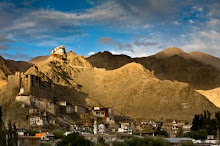
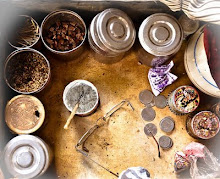

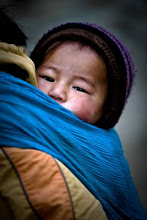
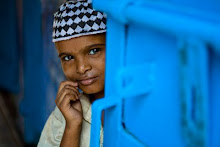

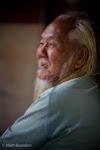

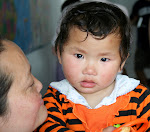
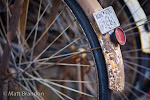










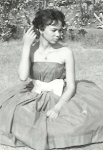







 We have started meeting with other home school mom's and kids once a week. It is a great opportunity to get together and just have some fun. The kids had a great time playing, and making friends, sharing snacks and feeding the ducks and geese. It's still a little hot, but we are on the way to cool!! Yeah!!!
We have started meeting with other home school mom's and kids once a week. It is a great opportunity to get together and just have some fun. The kids had a great time playing, and making friends, sharing snacks and feeding the ducks and geese. It's still a little hot, but we are on the way to cool!! Yeah!!!
 First I want to say, I am really behind and I apologize for that. For the sake of time, I will skip ahead to Day 25 and not fill the in between. Don't you just love the pictures of the peoples? This is one of my favorite people groups to look at. The are so beautiful.
First I want to say, I am really behind and I apologize for that. For the sake of time, I will skip ahead to Day 25 and not fill the in between. Don't you just love the pictures of the peoples? This is one of my favorite people groups to look at. The are so beautiful. 




 Fiji is an independent island republic in the Pacific Ocean made up of a few large islands and over 300 small ones. Fiji became independent in 1970, after nearly a century as a British colony. The islands have varied population of Fijian Melanesians, Indians, Europeans and others.
Fiji is an independent island republic in the Pacific Ocean made up of a few large islands and over 300 small ones. Fiji became independent in 1970, after nearly a century as a British colony. The islands have varied population of Fijian Melanesians, Indians, Europeans and others.Fijian Muslims were originally Indian immigrant laborers for the sugar cane industry. While Indian Hindu groups invested in building schools and pursuing Western education, Muslims historically put an emphasis on traditional Islamic schooling to protect and promote their identity. Because of the educational differences, Muslims have often been under-represented in institutions, civil service and in the professions.
The first mosque was built in Navau in 1900, and now there are approximately 200 mosques and "prayer houses" in Fiji. In rural areas, the Muslim communities can be identified by the presence of a mosque or "prayer house". An increasing number of Muslims have begun using Arabic forms of dress, thought by some to make them "real Muslims".
Christian mission attempts are just beginning to recognize the cultural and religious differences among the Indian people groups in Fiji. Until now, the conversion of Muslims has been more accidental than deliberate, but small numbers of Muslims are coming to Christ through many denominations.
We can PRAY:
*Christian congregations of former Muslims are needed to help new Muslim converts grow in discipleship.
*Pray for chruch-planting teams to establish groups of former Muslims.
*Most Muslims who come to Christ receive threats from religious leaders and pressure from relatives. many lose their jobs and are cast out by their families and friedns. Pray that they would have courage and commitment.

 The Singapore Malay constitute fifteen percent of Singapore's multi-racial population. They are widely dispersed all over the country of Singapore. They immigrated centuries ago, mostly coming from Peninsular Malaysia and parts of the Indonesian archipelago such as Java and Sumatra. Despite being the first inhabitants of the country, they are not the largest group due to the arrival of Chinese and Indian immigrants in later years. The Singapore Malay speak Bahasa Malaysia which is considered one of the major languages of Singapore.
The Singapore Malay constitute fifteen percent of Singapore's multi-racial population. They are widely dispersed all over the country of Singapore. They immigrated centuries ago, mostly coming from Peninsular Malaysia and parts of the Indonesian archipelago such as Java and Sumatra. Despite being the first inhabitants of the country, they are not the largest group due to the arrival of Chinese and Indian immigrants in later years. The Singapore Malay speak Bahasa Malaysia which is considered one of the major languages of Singapore. 





 The Zaza or Dimli are neither Turks nor Kurds. They live in eastern Turkey and have their own language, history and culture. Despite this, they have not been recognized as a separate people group.
The Zaza or Dimli are neither Turks nor Kurds. They live in eastern Turkey and have their own language, history and culture. Despite this, they have not been recognized as a separate people group.  Isaiah 40:3 ~Make straight in the desert a highway for God. Every valley shall be exalted and every mountain and hill brought low; the crooked places shall be made straight and the rough places smooth; The glory of the LORD shall be revealed and all flesh shall see it together, for the mouth of the LORD has spoken.
Isaiah 40:3 ~Make straight in the desert a highway for God. Every valley shall be exalted and every mountain and hill brought low; the crooked places shall be made straight and the rough places smooth; The glory of the LORD shall be revealed and all flesh shall see it together, for the mouth of the LORD has spoken.

 One of the newer cities in Iraq, sulaimaniya is near the Iranian border and has a population of approximately 800,000. It is the cultural center of the Sorani-speaking Kurds and is known for being youthful and progressive.
One of the newer cities in Iraq, sulaimaniya is near the Iranian border and has a population of approximately 800,000. It is the cultural center of the Sorani-speaking Kurds and is known for being youthful and progressive.Politically, the city has been dominated for a long time by the Partiotic Union of Kurdistan. Although Kurdish northern Iraq was considered to be particulary safe, a suicide bomber killed nine Kurdish soldiers in Sulaimanyiya in Octocer 2005. About the same time, the bird flu virus was detected in dead geese around the city of Erbil, less than a hundred miles from Sulaimaniya.
The Southern Kurd have endured much suffering in recent years. Their massive exodus from Iraq brought international attention to their situation as never before. As victims of the region's recent political developments, they have suffered no less than any other oppressed people group since World War II. The Iraqi secret police have often poisoned many of their Kurdish opponents both at home and abroad. Some have even been poisoned in refugee camps. The Kurd need to know that true refuge and safety can only be found in Jesus Christ. Poor health conditions and the scarcity of water are also problems faced by the Southern Kurd. Humanitarian aid workers and medical teams are needed to live and work among them.We can PRAY:
*Ask God to send Christian medical teams and humanitarian aid workers to live among them.
* Pray that God will supply clean water for the people of Iraq.
*Pray that the Holy Spirit will give the missions agencies strategies for reaching these Muslims with the Gospel.
*Ask God to use the small number of Southern Kurd believers as a clear Gospel witness to their own people.
*Pray that God will raise up qualified linguists to complete translation of the Bible into Kurdi.
*Ask the Holy Spirit to soften their hearts towards Christians so that they will be receptive to the Gospel.
*Pray that God will raise up a strong local church among the Southern Kurd.
Information taken from 30 Days Muslim Prayer Focus Frontiers Edition and Operation World

 I pray that out of his glorious riches he may strengthen you with power through his Spirit in your inner being, so that Christ may dwell in your hearts through faith. And I pray that you, being rooted and established in love, may have power, together with all the saints, to grasp how wide and long and high and deep is the love of Christ, and to know this love that surpasses knowledge - that you may be filled to the measure of all the fullness of God.
I pray that out of his glorious riches he may strengthen you with power through his Spirit in your inner being, so that Christ may dwell in your hearts through faith. And I pray that you, being rooted and established in love, may have power, together with all the saints, to grasp how wide and long and high and deep is the love of Christ, and to know this love that surpasses knowledge - that you may be filled to the measure of all the fullness of God.
 Tajik of Uzbekistan
Tajik of UzbekistanMuslims believe that Allah is unique, all-powerful, gracious and merciful to all Muslims. The Islamic faith is lived out according to five "pillars" that must be adhered to if one is to hope for salvation. A Muslim may observe each of these pillars, but there is still not guarantee of salvation.
The Five Pillars are:
1. Reciting the Creed (shahada)- "There is no god but Allah and Mohammed is his prophet."
2. Prayer (salat)- At five set times per day.
3. Almsgiving (zakat)-Both obligatory and voluntary giving to certain groups.
4. Fasting (siyam)-Especially during the "holy" month of Ramadan.
5. Pilgrimage (hajj)-At least once in a lifetime to Mecca.
Today's focus is on the Ferghana Valley in Uzbekistan. While the valley is less than 5 % of the land in Uzbekistan, it contains more than one-third of it's citizens. Altogether more then 10 million people live there.
The fertile valley grows wheat and cotton and has several orchards. It is also the center of silk production in Central Asia. Pesticides have depleted the soil in many areas and millions of agricultural workers plant and pick cotton for small wages while large profits go to officials and middlemen.
Culturally, Uzbeks of the Ferghana Valley consider themselves the most pure, and this pride has hindered the spread of the Gospel. The false idea, "To be Uzbek is to be Muslim", is very much accepted in the valley. We know, that a relationship with the True God would only make them more "Uzbek" as they understand who they can become through Christ.
We can PRAY:
*Pray for the national believers in the Ferghana Valley to be bold witnesses.
*Pray that the Holy Spirit will show people that valley a follower of Jesus will in no way make them less Uzbek, Tajik, or Kyrgyz.
*Pray for God's righteous ways to rule in the business realm.
Information taken from 30 days Muslim Prayer Focus Frontiers Edition & Operation World
 Kyrgyz of Uzbekistan
Kyrgyz of Uzbekistan